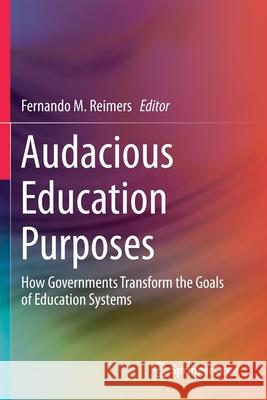Audacious Education Purposes: How Governments Transform the Goals of Education Systems » książka
topmenu
Audacious Education Purposes: How Governments Transform the Goals of Education Systems
ISBN-13: 9783030418847 / Angielski / Miękka / 2020 / 250 str.
Audacious Education Purposes: How Governments Transform the Goals of Education Systems
ISBN-13: 9783030418847 / Angielski / Miękka / 2020 / 250 str.
cena 200,77
(netto: 191,21 VAT: 5%)
Najniższa cena z 30 dni: 192,74
(netto: 191,21 VAT: 5%)
Najniższa cena z 30 dni: 192,74
Termin realizacji zamówienia:
ok. 22 dni roboczych
Dostawa w 2026 r.
ok. 22 dni roboczych
Dostawa w 2026 r.
Darmowa dostawa!
Kategorie:
Kategorie BISAC:
Wydawca:
Springer
Język:
Angielski
ISBN-13:
9783030418847
Rok wydania:
2020
Wydanie:
2020
Ilość stron:
250
Waga:
0.37 kg
Wymiary:
23.39 x 15.6 x 1.4
Oprawa:
Miękka
Wolumenów:
01
Dodatkowe informacje:
Wydanie ilustrowane











